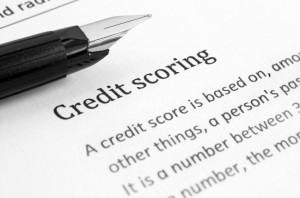 Credit scoring can often be confusing and overwhelming. Here is a quick guide to the 5 factors that impact your credit score.
Credit scoring can often be confusing and overwhelming. Here is a quick guide to the 5 factors that impact your credit score.
Payment History is the largest factor in how your score is calculated. How you pay your bills accounts for 35% of your total score. This includes not just collections, judgments and other negative items that will be reported, but whether or not you pay on time each month. You can be reported as 30 days, 60 days or 90 days late. The more delinquent the account, the more negative impact on your score. Even one 30 day late payment, if it is recent, can significantly lower your score. Make sure you make at least the minimum payment by the due date on all your accounts.
Credit Usage/Capacity is often the biggest mystery and accounts for 30% of your total score. This is calculated by assessing how much you currently owe vs your total available credit. From month to month, your balances may fluctuate on your revolving or credit card accounts, and your score can change significantly based on those balances. A good rule of thumb is to limit your balance at any given time to 30% or less. This means if you have a card with a $10K limit – you probably want the balance to be under $3K. Keep in mind that while revolving credit is what changes most frequently, this factor also calculates loans such as mortgages and auto loans. Best advice – pay down as much as possible to increase your score.
Credit History or how long you have had credit, makes up 15% of your total score. Best advice here? Keep those cards you opened when you were in college. Use them sparingly, paying off balances every month, but keep some activity on those older cards. When you close an account, you actually shorten the “credit history” and will likely see a decrease in your score.
Credit Mix and New Credit each account for 10% of your score. This means that you want to have a good mix of revolving credit (credit cards, lines of credit) and installment credit (auto, mortgage). But because “new” credit can impact your score negatively, you want to be careful when opening new accounts. Those new accounts can actually decrease the score initially, so my advice is to be cautious and intentional when considering new credit.
(Guest post and great advice by Betsie Hughes, Senior Mortgage Consultant at Movement Mortgage, a preferred lending partner of 865RealEstate.com and Troy Stavros).
SOURCE: http://www.ehow.com/info_7953861_key-factors-impact-credit-score.html